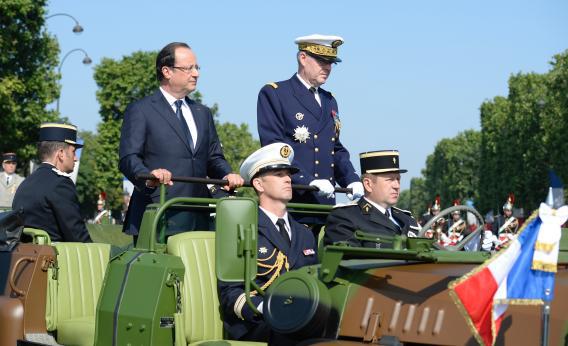The new, more aggressive foreign policy posture that the French government adopted in the later months of Nicolas Sarkozy’s presidency seems to be permanent. Following on the 2011 peacekeeping operation in the Ivory Coast and Sarkozy’s championing of the international intervention in Libya later that year, Francois Hollande’s government launched a military intervention in Mali—which involved 4,000 troops at its peak. Even before the operation Mali, France had almost 5,000 troops stationed abroad at posting including Afghanistan, Chad, Lebanon, and Ivory Coast. At least 1,000 troops will remain in Mali. The French government has also emerged as the most forceful voice pushing for intervention in Syria.
Foreign Minister Laurent Fabius said today that if reports of a chemical weapons attack by Bashar al-Assad’s government are confirmed, “There would have to be reaction with force in Syria from the international community.” (For what it’s worth, former President Sarkozy has been pushing for intervention for a while now.)
What’s interesting about French foreign policy is that at the same time its posture is becoming more hawkish, it’s scaling back on its military capabilities. The French military is still large and well-funded by European standards, but austerity cuts are taking their toll. A six-year budget adopted this month reduces the total military and defense staff from 324,000 to 242,000. That will include a cut of 10,000 operational troops. Spending will be held at current levels for the next three years.
French military planners still claim the ability to sustain the deployment of 30,000 troops overseas, and in any case Fabius was adamant that any intervention in Syria would not include ground troops. But it remians unclear whether Europe’s preeminent military power has a bite will keep up with its bark for much longer.
